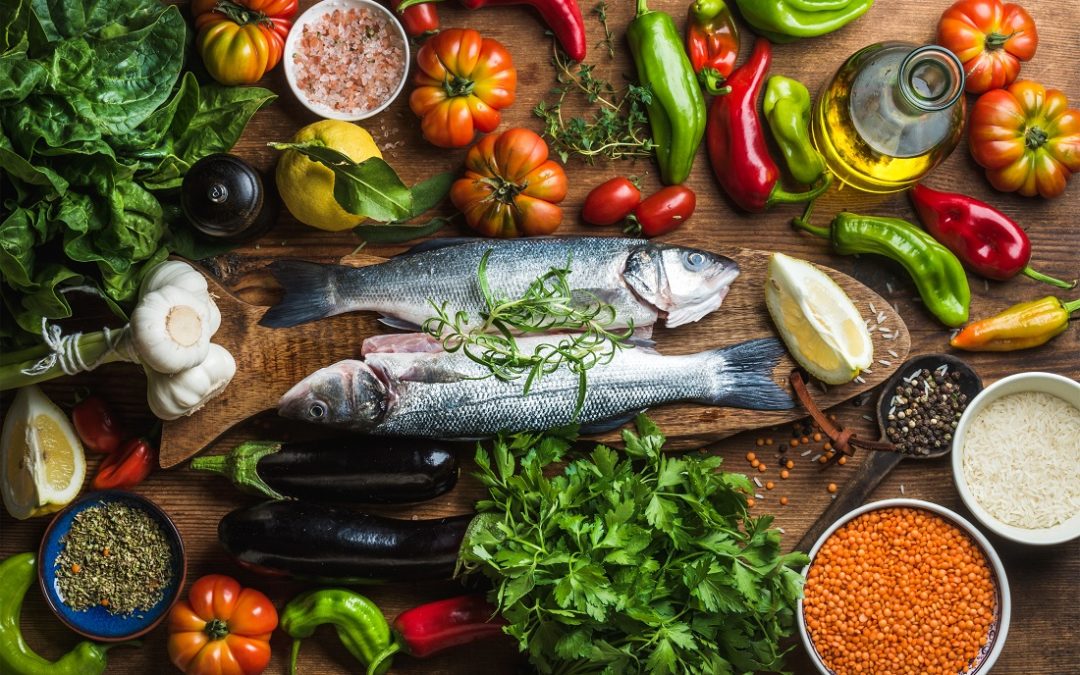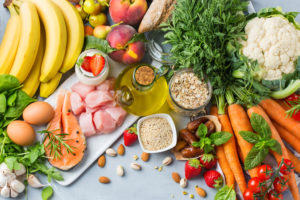The Mediterranean diet is a colorful, plant-based eating approach loaded with vegetables and healthy fats. It’s a diet that is known for being heart-healthy and recommended frequently by Thinnergy. When you look at your plate or snack, it should be bursting with color from a variety of vegetables, fruit, nuts, seafood, and seeds. Because we often recommend this approach to patients, we’ve put together some general guidelines of the diet along with a few recommended Mediterranean restaurants in St. Louis to begin your journey in discovering the Mediterranean lifestyle.
What you can eat on the Mediterranean Diet:
Vegetables, fruits, potatoes, legumes, seeds, nuts, whole grains, fish, seafood, and extra virgin olive oil are all staple ingredients in following the Mediterranean diet. Egg, poultry, cheese, and yogurt can be taken in moderation.
What to limit: Red or processed meats, added sugar, sugar-sweetened beverages, refined grains, refined oils, and other highly processed foods should rarely be eaten when following the Mediterranean diet.
Fruits and vegetables can be fresh, frozen, dried, or canned however it is important to check package labels. Canned fruits and vegetables should be rinsed to reduce sodium.
According to Healthline, the following are key ingredients to cook with and eat when following the Mediterranean diet.
Ideally, your diet should focus on including these healthy Mediterranean foods:
- Vegetables: tomatoes, broccoli, kale, spinach, onions, cauliflower, carrots, Brussels sprouts, cucumbers, potatoes, sweet potatoes, turnips
- Fruits: apples, bananas, oranges, pears, strawberries, grapes, dates, figs, melons, peaches
- Nuts, seeds, and nut butters: almonds, walnuts, macadamia nuts, hazelnuts, cashews, sunflower seeds, pumpkin seeds, almond butter, peanut butter
- Legumes: beans, peas, lentils, pulses, peanuts, chickpeas
- Whole grains: oats, brown rice, rye, barley, corn, buckwheat, whole wheat bread and pasta
- Fish and seafood: salmon, sardines, trout, tuna, mackerel, shrimp, oysters, clams, crab, mussels
- Poultry: chicken, duck, turkey
- Eggs: chicken, quail, and duck eggs
- Dairy: cheese, yogurt, milk
- Herbs and spices: garlic, basil, mint, rosemary, sage, nutmeg, cinnamon, pepper
- Healthy fats: extra virgin olive oil, olives, avocados, and avocado oil
Your diet should also focus on avoiding the following:
- Added sugar: added sugar is found in many foods but especially high in soda, candies, ice cream, table sugar, syrup, and baked goods
- Refined grains: white bread, pasta, tortillas, chips, crackers
- Trans fats: found in margarine, fried foods, and other processed foods
- Refined oils: soybean oil, canola oil, cottonseed oil, grapeseed oil
- Processed meat: processed sausages, hot dogs, deli meats, beef jerky
- Highly processed foods: fast food, convenience meals, microwave popcorn, granola bars
On days you don’t want to cook, or would rather eat out, there are several Mediterranean restaurants in St. Louis to enjoy. Casa don Alfonso offers Mediterranean cuisine including brunch just next door to The Ritz-Carlton, St. Louis. You can also get inspired by the region from this list of Mediterranean restaurants to visit in the area, published by Sauce Magazine. Fresh, seasonal produce can be found at local farmer’s markets around town. Or, if you are just looking for healthy restaurants to try, you can check out this article of best picks for nutrition-focused restaurants in the St. Louis area.


